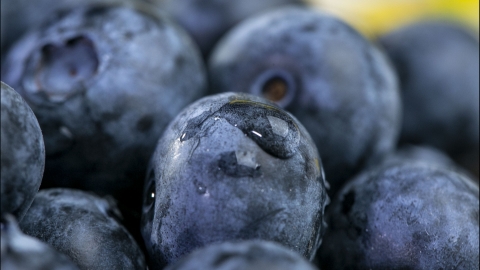What can I eat to relieve cerebral hypoxia?
Generally, to alleviate cerebral hypoxia, one can consume foods such as walnuts, blueberries, spinach, eggs, and deep-sea fish, as well as medications such as Cytidine Diphosphate Choline Sodium Tablets, Cerebroprotein Hydrolysate Tablets, Oxiracetam Capsules, Ginkgo Biloba Leaf Tablets, and Mecobalamin Tablets. If abnormalities occur, prompt medical attention is recommended. Detailed explanations are as follows:

1. Walnuts: Rich in unsaturated fatty acids and phospholipids, they provide nutrients to the brain, help improve brain function, and alleviate hypoxia-induced dizziness and fatigue. They can be eaten directly or added to porridge.
2. Blueberries: Contain abundant anthocyanins and antioxidants, which protect cerebral blood vessels and improve cerebral circulation, thereby helping to relieve discomfort caused by cerebral hypoxia. They can be eaten directly or made into jam.
3. Spinach: Contains iron and folic acid. Iron participates in hemoglobin synthesis while folic acid aids red blood cell production, promoting oxygen transport and alleviating cerebral hypoxia. It can be stir-fried or blanched and then cold-mixed.
4. Eggs: Contain high-quality protein and lecithin. Lecithin is an essential component of nerve cells, assisting in maintaining normal brain function and relieving fatigue caused by hypoxia. Eggs can be boiled, steamed, or stir-fried.
5. Deep-sea fish: Such as salmon and sardines, rich in DHA and EPA, which improve cerebral vascular elasticity and promote cerebral circulation, aiding in the relief of cerebral hypoxia. They can be steamed or baked.
6. Cytidine Diphosphate Choline Sodium Tablets: Promote brain cell metabolism and improve cerebral circulation. They are used to treat neurological sequelae caused by craniocerebral injury or cerebrovascular accidents, relieving neurological dysfunction caused by cerebral hypoxia.
7. Cerebroprotein Hydrolysate Tablets: A peptide extract produced by hydrolysis of pig brain protein, which nourishes nerve cells and improves brain function. They are used to alleviate symptoms caused by cerebral hypoxia such as insomnia, headache, and memory decline.
8. Oxiracetam Capsules: Promote cerebral metabolism, increase the ATP/ADP ratio in the brain, and enhance cerebral blood flow. They are used to treat memory and cognitive impairments caused by mild to moderate vascular dementia, senile dementia, and brain injuries, helping to alleviate cerebral hypoxia-related problems.
9. Ginkgo Biloba Leaf Tablets: Contain Ginkgo Biloba extract, which dilates cerebral blood vessels, improves cerebral circulation, and increases cerebral blood flow. They are used for conditions such as angina pectoris and stroke caused by blood stasis blocking the meridians, alleviating cerebral hypoxia-induced dizziness and headaches.
10. Mecobalamin Tablets: As an endogenous coenzyme B12, they nourish nerves, promote nerve myelin synthesis, and improve nerve conduction. They are used for peripheral neuropathy and can also assist in relieving neurological dysfunction caused by cerebral hypoxia.
In daily life, ensure indoor ventilation, avoid staying in enclosed environments for long periods, and engage in appropriate aerobic exercises such as walking or jogging to promote oxygen intake and circulation. If symptoms of cerebral hypoxia occur frequently or worsen, timely medical evaluation is necessary.








